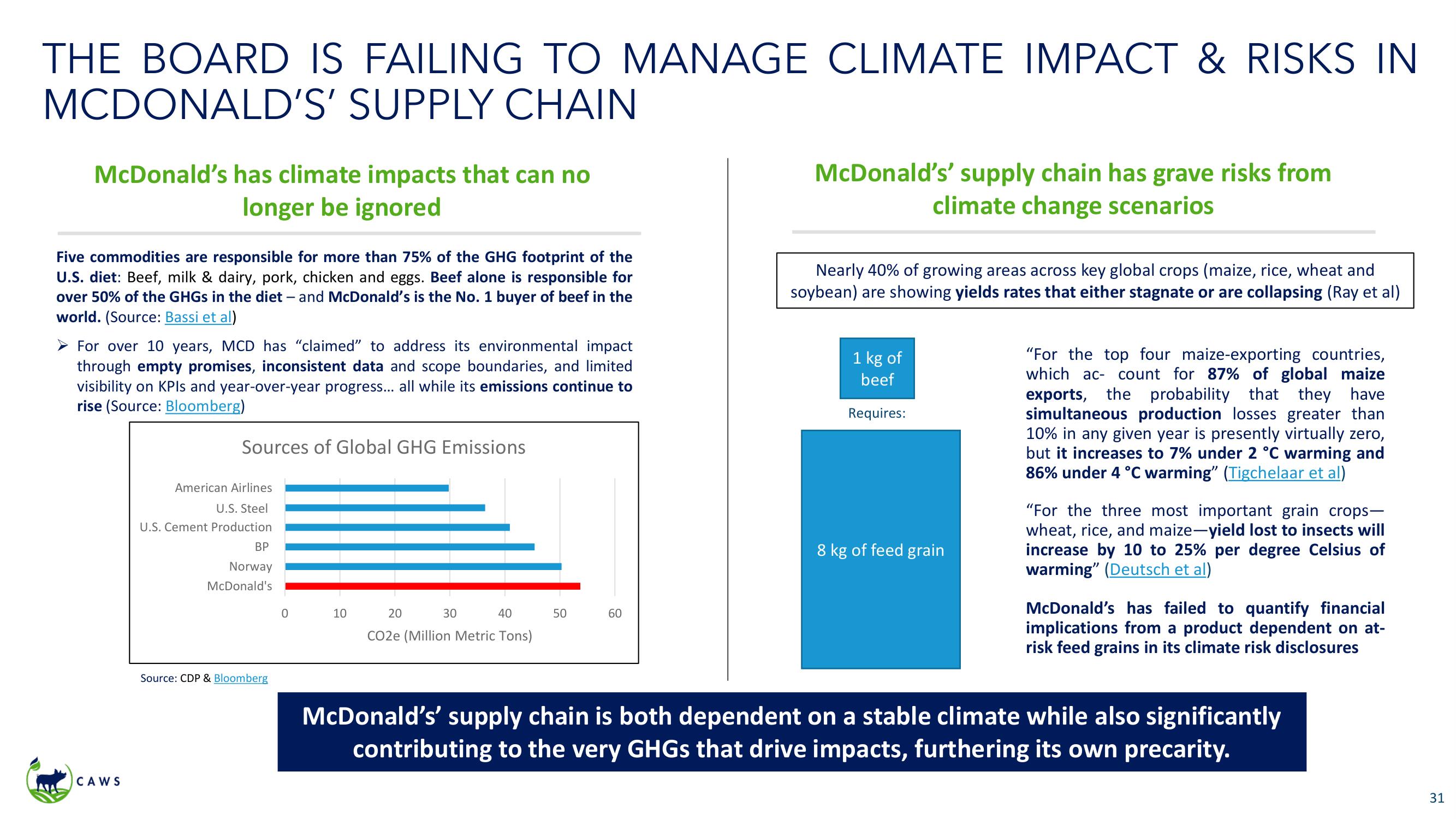Icahn Enterprises Activist Presentation Deck
THE BOARD IS FAILING TO MANAGE CLIMATE IMPACT & RISKS IN
MCDONALD'S' SUPPLY CHAIN
McDonald's has climate impacts that can no
longer be ignored
Five commodities are responsible for more than 75% of the GHG footprint of the
U.S. diet: Beef, milk & dairy, pork, chicken and eggs. Beef alone is responsible for
over 50% of the GHGS in the diet - and McDonald's is the No. 1 buyer of beef in the
world. (Source: Bassi et al)
➤ For over 10 years, MCD has "claimed" to address its environmental impact
through empty promises, inconsistent data and scope boundaries, and limited
visibility on KPIs and year-over-year progress... all while its emissions continue to
rise (Source: Bloomberg)
CAWS
Sources of Global GHG Emissions
American Airlines
U.S. Steel
U.S. Cement Production
BP
Norway
McDonald's
Source: CDP & Bloomberg
0
10
20
40
CO2e (Million Metric Tons)
30
50
60
McDonald's' supply chain has grave risks from
climate change scenarios
Nearly 40% of growing areas across key global crops (maize, rice, wheat and
soybean) are showing yields rates that either stagnate or are collapsing (Ray et al)
1 kg of
beef
Requires:
8 kg of feed grain
"For the top four maize-exporting countries,
which account for 87% of global maize
exports, the probability that they have
simultaneous production losses greater than
10% in any given year is presently virtually zero,
but it increases to 7% under 2 °C warming and
86% under 4 °C warming" (Tigchelaar et al)
"For the three most important grain crops-
wheat, rice, and maize-yield lost to insects will
increase by 10 to 25% per degree Celsius of
warming" (Deutsch et al)
McDonald's has failed to quantify financial
implications from a product dependent on at-
risk feed grains in its climate risk disclosures
McDonald's' supply chain is both dependent on a stable climate while also significantly
contributing to the very GHGs that drive impacts, furthering its own precarity.
31View entire presentation